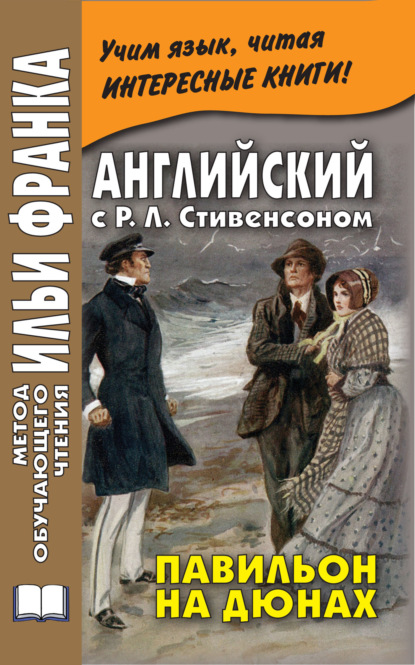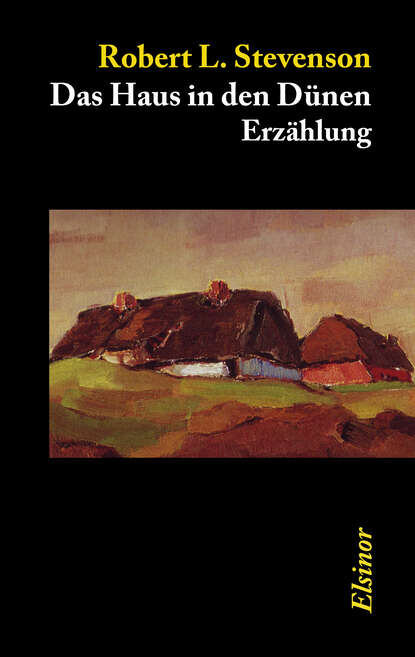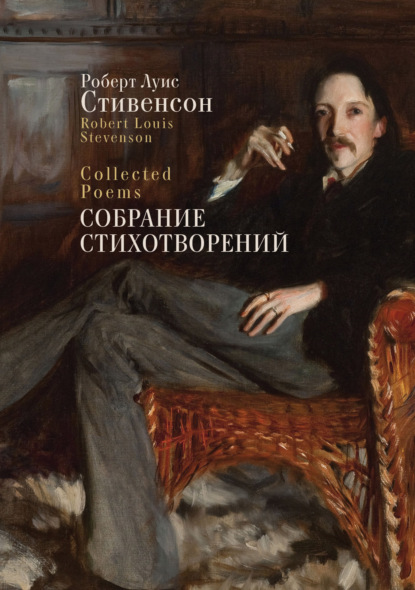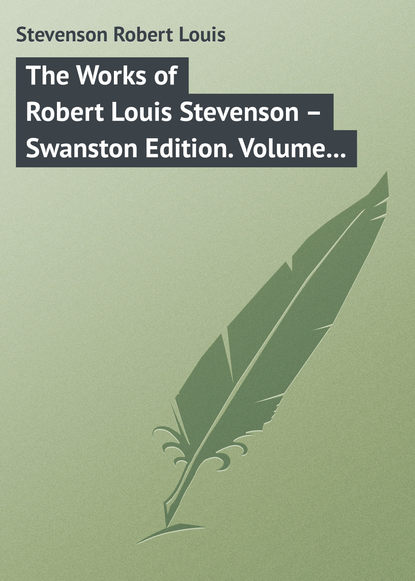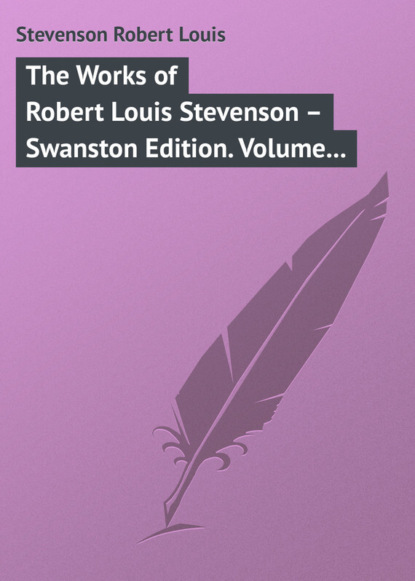 Полная версия
Полная версияПолная версия:
Роберт Льюис Стивенсон The Works of Robert Louis Stevenson – Swanston Edition. Volume 23
- + Увеличить шрифт
- - Уменьшить шрифт

Robert Louis Stevenson
The Works of Robert Louis Stevenson – Swanston Edition, Vol. 23
INTRODUCTION
The circumstances which have made me responsible for selecting and editing the correspondence of Robert Louis Stevenson are the following. He was for many years my closest friend. We first met in 1873, when he was in his twenty-third year and I in my twenty-ninth, at the place and in the manner mentioned at page 54 of this volume. It was my good fortune then to be of use to him, partly by such technical hints as even the most brilliant beginner may take from an older hand, partly by recommending him to editors – first, if I remember right, to Mr. Hamerton and Mr. Richmond Seeley, of the Portfolio, then in succession to Mr. George Grove (Macmillan’s Magazine), Mr. Leslie Stephen (Cornhill), and Dr. Appleton (the Academy); and somewhat, lastly, by helping to raise him in the estimation of parents who loved but for the moment failed to understand him. It belonged to the richness of his nature to repay in all things much for little, ἑκατόμβοὶ ἐννεαβοιῶν, and from these early relations sprang the affection and confidence, to me inestimable, of which the following correspondence bears evidence.
One day in the autumn of 1888, in the island of Tahiti, during an illness which he supposed might be his last, Stevenson put into the hands of his stepson, Mr. Lloyd Osbourne, a sealed paper with a request that it might be opened after his death. He recovered, and had strength enough to enjoy six years more of active life and work in the Pacific Islands. When the end came, the paper was opened and found to contain, among other things, the expression of his wish that I should prepare for publication “a selection of his letters and a sketch of his life.” I had already, in 1892, when he was anxious – needlessly, as it turned out – as to the provision he might be able to leave for his family, received from him a suggestion that “some kind of a book” might be made out of the monthly journal-letters which he had been in the habit of writing me from Samoa: letters begun at first with no thought of publication and simply in order to maintain our intimacy, so far as might be, undiminished by separation. This part of his wishes I was able to carry out promptly, and the result appeared under the title Vailima Letters in the autumn following his death (1895). Lack of leisure delayed the execution of the remaining part. For one thing, the body of correspondence which came in from various quarters turned out much larger than had been anticipated. He did not love writing letters, and will be found somewhere in the following pages referring to himself as one “essentially and originally incapable of the art epistolary.” That he was a bad correspondent had come to be an accepted view among his friends; but in truth it was only during one period of his life that he at all deserved such a reproach.1 At other times, as became apparent after his death, he had shown a degree of industry and spirit in letter-writing extraordinary considering his health and his occupations. It was indeed he and not his friends, as will abundantly appear in the course of these volumes, who oftenest had cause to complain of answers neglected or delayed. His letters, it is true, were often the most informal in the world, and he generally neglected to date them, a habit which is the despair of editors: but after his own whim and fashion he wrote a vast number, so that the work of sifting, copying, and arranging was long and laborious. It was not until the autumn of 1899 that the Letters to his Family and Friends were ready for publication, and in the meantime the task of writing the Life had been taken over by his cousin and my friend, Mr. Graham Balfour, who completed it two years later.
“In considering the scale and plan on which my friend’s instruction should be carried out” (I quote, with the change of a word or two, from my Introduction of 1899), “it seemed necessary to take into account, not his own always modest opinion of himself, but the place which he seemed likely to take ultimately in the world’s regard. The four or five years following the death of a writer much applauded in his lifetime are generally the years when the decline of his reputation begins, if it is going to suffer decline at all. At present, certainly, Stevenson’s name seems in no danger of going down. On the stream of daily literary reference and allusion it floats more actively than ever. In another sense its vitality is confirmed by the material test of continued sales and of the market. Since we have lost him other writers, whose beginnings he watched with sympathetic interest, have come to fill a greater immediate place in public attention; but none has exercised Stevenson’s peculiar and personal power to charm, to attach, and to inspirit. By his study of perfection in form and style – qualities for which his countrymen in general have been apt to care little – he might seem destined to give pleasure chiefly to the fastidious and the artistically minded. But as to its matter, the main appeal of his work is not to any mental tastes and fashions of the few; it is rather to universal, hereditary instincts, to the primitive sources of imaginative excitement and entertainment in the race.
“The voice of the advocatus diaboli has been heard against him, as it is right and proper that it should be heard against any man before his reputation can be held fully established. One such advocate in this country has thought to dispose of him by the charge of ‘externality.’ But the reader who remembers things like the sea-frenzy of Gordon Darnaway, or the dialogue of Markheim with his other self in the house of murder, or the re-baptism of the spirit of Seraphina in the forest dews, or the failure of Herrick to find in the waters of the island lagoon a last release from dishonour, or the death of Goguelat, or the appeal of Kirstie Elliot in the midnight chamber – such a reader can only smile at a criticism like this and put it by. These and a score of other passages breathe the essential poetry and significance of things as they reveal themselves to true masters only: they are instinct at once with the morality and the romance which lie deep together at the soul of nature and experience. Not in vain had Stevenson read the lesson of the Lantern-Bearers, and hearkened to the music of the pipes of Pan. He was feeling his way all his life towards a fuller mastery of his means, preferring always to leave unexpressed what he felt that he could not express adequately; and in much of his work was content merely to amuse himself and others. But even when he is playing most fancifully with his art and his readers, as in the shudders, tempered with laughter, of the Suicide Club, or the airy sentimental comedy of Providence and the Guitar, or the schoolboy historical inventions of Dickon Crookback and the old sailor Arblaster, a writer of his quality cannot help striking notes from the heart of life and the inwardness of things deeper than will ever be struck, or even apprehended, by another who labours, with never a smile either of his own or of his reader’s, upon the most solemn enterprises of realistic fiction, but is born without the magician’s touch and insight.
“Another advocate on the same side, in the United States, has made much of the supposed dependence of this author on his models, and classed him among writers whose inspiration is imitative and second-hand. But this is to be quite misled by the well-known passage of Stevenson’s own, in which he speaks of himself as having in his prentice years played the ‘sedulous ape’ to many writers of different styles and periods. In doing this he was not seeking inspiration, but simply practising the use of the tools which were to help him to express his own inspirations. Truly he was always much of a reader: but it was life, not books, that always in the first degree allured and taught him.
‘He loved of life the myriad sides,Pain, prayer, or pleasure, act or sleep,As wallowing narwhals love the deep’ —so with just self-knowledge he wrote of himself; and the books which he most cared for and lived with were those of which the writers seemed – to quote again a phrase of his own – to have been ‘eavesdropping at the door of his heart’: those which told of experiences or cravings after experience, pains, pleasures, or conflicts of the spirit, which in the eagerness of youthful living and thinking had already been his own. No man, in fact, was ever less inclined to take anything at second-hand. The root of all originality was in him, in the shape of an extreme natural vividness of perception, imagination, and feeling. An instinctive and inbred unwillingness to accept the accepted and conform to the conventional was of the essence of his character, whether in life or art, and was a source to him both of strength and weakness. He would not follow a general rule – least of all if it was a prudential rule – of conduct unless he was clear that it was right according to his private conscience; nor would he join, in youth, in the ordinary social amusements of his class when he had once found out that they did not amuse him; nor wear their clothes if he could not feel at ease and be himself in them; nor use, whether in speech or writing, any trite or inanimate form of words that did not faithfully and livingly express his thought. A readier acceptance alike of current usages and current phrases might have been better for him, but was simply not in his nature. No reader of this book will close it, I am sure, without feeling that he has been throughout in the company of a spirit various indeed and many-mooded, but profoundly sincere and real. Ways that in another might easily have been mere signs of affectation were in him the true expression of a nature ten times more spontaneously itself and individually alive than that of others. Self-consciousness, in many characters that possess it, deflects and falsifies conduct; and so does the dramatic instinct. Stevenson was self-conscious in a high degree, but only as a part of his general activity of mind; only in so far as he could not help being an extremely intelligent spectator of his own doings and feelings: these themselves came from springs of character and impulse much too deep and strong to be diverted. He loved also, with a child’s or actor’s gusto, to play a part and make a drama out of life: but the part was always for the moment his very own: he had it not in him to pose for anything but what he truly was.
“When a man so constituted had once mastered his craft of letters, he might take up whatever instrument he pleased with the instinctive and just confidence that he would play upon it to a tune and with a manner of his own. This is indeed the true mark and test of his originality. He has no need to be, or to seem, especially original in the form and mode of literature which he attempts. By his choice of these he may at any time give himself and his reader the pleasure of recalling, like a familiar air, some strain of literary association; but in so doing he only adds a secondary charm to his work; the vision, the temperament, the mode of conceiving and handling, are in every case personal to himself. He may try his hand in youth at a Sentimental Journey, but R. L. S. cannot choose but be at the opposite pole of human character and feeling from Laurence Sterne. In tales of mystery, allegorical or other, he may bear in mind the precedent of Edgar Poe, and yet there is nothing in style and temper much wider apart than Markheim and Jekyll and Hyde are from the Murders in the Rue Morgue or William Wilson. He may set out to tell a pirate story for boys ‘exactly in the ancient way,’ and it will come from him not in the ancient way at all, but re-minted; marked with a sharpness and saliency in the characters, a private stamp of buccaneering ferocity combined with smiling humour, an energy of vision and happy vividness of presentment, which are shiningly his own. Another time, he may desert the paths of Kingston and Ballantyne for those of Sir Walter Scott; but literature presents few stronger contrasts than between any scene of Waverley or Redgauntlet and any scene of the Master of Ballantrae or Catriona, whether in their strength or weakness: and it is the most loyal lovers of the older master who take the greatest pleasure in reading the work of the younger, so much less opulently gifted as is probable – though we must remember that Stevenson died at the age when Scott wrote Waverley– so infinitely more careful of his gift. Stevenson may even blow upon the pipe of Burns and yet his tune will be no echo, but one which utters the heart and mind of a Scots maker who has his own outlook on life, his own special and profitable vein of smiling or satirical contemplation.
“Not by reason, then, of ‘externality,’ for sure, nor yet of imitativeness, will this writer lose his hold on the attention and regard of his countrymen. The debate, before his place in literature is settled, must rather turn on other points: as whether the genial essayist and egoist or the romantic inventor and narrator was the stronger in him – whether the Montaigne and Pepys elements prevailed in his literary composition or the Scott and Dumas elements – a question indeed which among those who care for him most has always been at issue. Or again, what degree of true inspiring and illuminating power belongs to the gospel, or gospels, airily encouraging or gravely didactic, which are set forth in the essays with so captivating a grace? Or whether in romance and tale he had a power of inventing and constructing a whole fable comparable to his admitted power of conceiving and presenting single scenes and situations in a manner which stamps them indelibly on the reader’s mind? And whether his figures are sustained continuously by the true spontaneous breath of creation, or are but transitorily animated at happy moments by flashes of spiritual and dramatic insight, aided by the conscious devices of his singularly adroit and spirited art? These are questions which no criticism but that of time can solve. To contend, as some do, that strong creative impulse and so keen an artistic self-consciousness as Stevenson’s was cannot exist together, is quite idle. The truth, of course, is that the deep-seated energies of imaginative creation are found sometimes in combination, and sometimes not in combination, with an artistic intelligence thus keenly conscious of its own purpose and watchful of its own working.
“Once more, it may be questioned whether, among the many varieties of work which Stevenson has left, all distinguished by a grace and precision of workmanship which are the rarest qualities in English art, there are any which can be pointed to as absolute masterpieces, such as the future cannot be expected to let die. Let the future decide. What is certain is that posterity must either be very well or very ill occupied if it can consent to give up so much sound entertainment, and better than entertainment, as this writer afforded his contemporaries. In the meantime, among judicious readers on both sides of the Atlantic, Stevenson stands, I think it may safely be said, as a true master of English prose; scarcely surpassed for the union of lenity and lucidity with suggestive pregnancy and poetic animation; for harmony of cadence and the well-knit structure of sentences; and for the art of imparting to words the vital quality of things, and making them convey the precise – sometimes, let it be granted, the too curiously precise – expression of the very shade and colour of the thought, feeling, or vision in his mind. He stands, moreover, as the writer who, in the last quarter of the nineteenth century, has handled with the most of freshness and inspiriting power the widest range of established literary forms – the moral, critical, and personal essay, travels sentimental and other, romances and short tales both historical and modern, parables and tales of mystery, boys’ stories of adventure, memoirs – nor let lyrical and meditative verse both English and Scottish, and especially nursery verse, a new vein for genius to work in, be forgotten. To some of these forms Stevenson gave quite new life; through all alike he expressed vividly an extremely personal way of seeing and being, a sense of nature and romance, of the aspects of human existence and problems of human conduct, which was essentially his own. And in so doing he contrived to make friends and even lovers of his readers. Those whom he attracts at all (and there is no writer who attracts every one) are drawn to him over and over again, finding familiarity not lessen but increase the charm of his work, and desiring ever closer intimacy with the spirit and personality which they divine behind it.
“As to the fitting scale, then, on which to treat the memory of a man who fills five years after his death such a place as this in the general regard, and who has desired that a selection from his letters shall be made public, the word ‘selection’ has evidently to be given a pretty liberal interpretation. Readers, it must be supposed, will scarce be content without the opportunity of a fairly ample intercourse with such a man as he was accustomed to reveal himself in writing to his familiars. In choosing from among the material before me” (I still quote from the Introduction of 1899), “I have used the best discretion that I could. Stevenson’s feelings and relations throughout life were in almost all directions so warm and kindly, that very little had to be suppressed from fear of giving pain.2 On the other hand, he drew people towards him with so much confidence and affection, and met their openness with so much of his own, that an editor could not but feel the frequent risk of inviting readers to trespass too far on purely private affairs and feelings, including those of the living. This was a point upon which in his lifetime he felt strongly. That excellent critic, Mr. Walter Raleigh, has noticed, as one of the merits of Stevenson’s personal essays and accounts of travel, that few men have written more or more attractively of themselves without ever taking the public unduly into familiarity or overstepping proper bounds of reticence. Public prying into private lives, the propagation of gossip by the press, and printing of private letters during the writer’s lifetime, were things he hated. Once, indeed, he very superfluously gave himself a dangerous cold, by dancing before a bonfire in his garden at the news of a ‘society’ editor having been committed to prison; and the only approach to a difference he ever had with one of his lifelong friends arose from the publication, without permission, of one of his letters written during his first Pacific voyage.
“How far, then, must I regard his instructions about publication as authorising me to go after his death beyond the limits which he had been so careful in observing and desiring others to observe in life? How much may now fairly become public of that which had been held sacred and hitherto private among his friends? To cut out all that is strictly personal and intimate were to leave his story untold and half the charm of his character unrevealed: to put in too much were to break all bonds of that privacy which he so carefully regarded while he lived. I know not if I have at all been able to hit the mean, and to succeed in making these letters, as it has been my object to make them, present, without offence or intrusion, a just, a living, and proportionate picture of the man as far as they will yield it. There is one respect in which his own practice and principle has had to be in some degree violated, if the work was to be done at all. Except in the single case of the essay Ordered South, he would never in writing for the public adopt the invalid point of view, or invite any attention to his infirmities. ‘To me,’ he says, ‘the medicine bottles on my chimney and the blood on my handkerchief are accidents; they do not colour my view of life; and I should think myself a trifler and in bad taste if I introduced the world to these unimportant privacies.’ But from his letters to his family and friends these matters could not possibly be left out. The tale of his life, in the years when he was most of a correspondent, was in truth a tale of daily and nightly battle against weakness and physical distress and danger. To those who loved him, the incidents of this battle were communicated, sometimes gravely, sometimes laughingly. I have greatly cut down such bulletins, but could not possibly omit them altogether.”
In 1911, twelve years after the above words were written, the estimate expressed in them of Stevenson’s qualities as a writer, and of the place he seemed likely to maintain in the affections of English readers all the world over, had been amply confirmed by the lapse of time. The sale of his works kept increasing rather than diminishing. Editions kept multiplying. A new generation of readers had found life and letters, nature and human nature, touched by him at so many points with so vivifying and illuminating a charm that it had become scarcely possible to take up any newspaper or magazine and not find some reference to his work and name. Both series of letters – even one mainly concerned, as the Vailima Letters are, with matters of interest both remote and transitory – had been read in edition after edition: and readers had been and were continually asking for more. The time was thought to have come for a new and definitive edition, in which the two series of letters already published should be thrown into one, and as much new material added as could be found suitable. The task of carrying out this scheme fell again upon me. The new edition constituted in effect a nearly complete epistolary autobiography. It contained not less than a hundred and fifty of Stevenson’s letters hitherto unpublished. They dated from all periods of his life, those written in the brilliant and troubled days of his youth predominating, and giving a picture, perhaps unique in its kind, of a character and talent in the making. The present edition is a reprint of the edition of 1911, with a few errors of transcription and one or two of date corrected, and with a very few new letters added.
Much, of course, remains and ought to remain unprinted. Some of the outpourings of the early time are too sacred and intimate for publicity. Many of the letters of his maturer years are dry business letters of no general interest: many others are mere scraps tossed in jest to his familiars and full of catchwords and code-words current in their talk but meaningless to outsiders. Above all, many have to be omitted because they deal with the intimate affairs of private persons. Stevenson has been sometimes called an egoist, as though he had been one in the practical sense as well as in the sense of taking a lively interest in his own moods and doings. Nothing can be more untrue. The letters printed in these volumes are indeed for the most part about himself: but it was of himself that his correspondents of all things most cared to hear. If the letters concerned with the private affairs of other people could be printed, as of course they cannot, the balance would come more than even. We should see him throwing himself with sympathetic ardour and without thought of self into the cares and interests of his correspondents, and should learn to recognise him as having been truly the helper in many a relation where he might naturally have been taken for the person helped.
As to the form in which the Letters are now presented, they fill three volumes instead of the four of the 1911 edition, the division into fourteen sections according to date being retained. As to the text, it is faithful to the original except in so far as I have freely used the editorial privilege of omission when I thought it desirable, and as I have not felt myself bound to reproduce slips and oddities, however characteristic, of spelling. In formal matters like the use of quote-marks, italics, and so forth, I have adopted a more uniform practice than his, which was very casual and variable.
To some readers, perhaps – (from this point I again resume my Introduction of 1899, but with more correction and abridgment) – to some, perhaps, the very lack of art as a correspondent to which Stevenson, as above quoted, pleads guilty may give the reading an added charm and flavour. What he could do as an artist in letters we know. I remember Sir John Millais, a shrewd and very independent judge of books, calling across to me at a dinner-table, “You know Stevenson, don’t you?” and then going on, “Well, I wish you would tell him from me, if he cares to know, that to my mind he is the very first of living artists. I don’t mean writers merely, but painters and all of us. Nobody living can see with such an eye as that fellow, and nobody is such a master of his tools.” But in his letters, excepting a few written in youth and having more or less the character of exercises, and a few in after years which were intended for the public eye, Stevenson the deliberate artist is scarcely forthcoming at all. He does not care a fig for order or logical sequence or congruity, or for striking a key of expression and keeping it, but becomes simply the most spontaneous and unstudied of human beings. He has at his command the whole vocabularies of the English and Scottish languages, classical and slang, with good stores of the French, and tosses and tumbles them about irresponsibly to convey the impression or affection, the mood or freak of the moment; pouring himself out in all manner of rhapsodical confessions and speculations, grave or gay, notes of observation and criticism, snatches of remembrance and autobiography, moralisings on matters uppermost for the hour in his mind, comments on his own work or other people’s, or mere idle fun and foolery.


